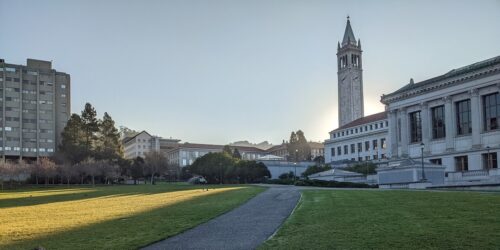CA Supreme Court agrees to review if courts can demolish UC Berkeley student housing plans over ‘noise’
June 27, 2023
Northern California Record
Kathryn Oehlschlager spoke with Sarah Downey at the Northern California Record about a housing legal battle at UC Berkeley. A proposed student housing development has been put on hold as a result of the potential for “loud noise” under the California Environmental Quality Act (CEQA). In the article, Kathryn discusses the case and how CEQA may impact additional housing projects. You can read the full article below.
After an appellate decision that blamed noise levels under the California Environmental Quality Act (CEQA), the California Supreme Court will review the case, which matches UC Berkeley neighbors against the school’s efforts to build more housing.
The Supreme Court announced its intention to take up Make UC a Good Neighbor v. Regents of University of California last month.
There are two issues in the case, but the most critical relates to noise impacts, said attorney Kathryn L. Oehlschlager, a partner at Downey Brand, San Francisco, in an email response to the Northern California Record.
“The Court of Appeal expanded the scope of CEQA in a significant way with regard to noise impacts, finding that agencies should consider impacts of human-generated noise if there is evidence that future users or inhabitants of a project are particularly loud,” Oehlschlager said. “In addition to going beyond what the statute actually requires, this creates a slippery slope, allowing project opponents to get in the way of projects they don’t like by simply alleging the inhabitants will be noisy. While this case is about students, the same argument could be made about projects designed to house other groups, including affordable housing, which is likely to be more densely populated.”
Oehlschlager added she is hopeful that the Supreme Court granted review because it understands both that the appellate court misinterpreted the law and that its interpretation has dangerous social and practical implications.
“If the Supreme Court affirms the appellate opinion, agencies will have yet another question to add to the long and burdensome list of issues to analyze under CEQA: Are the users or residents of a proposed project particularly noisy, and if so, what will be the impacts of that noise?” Oehlschlager said. “I’m no expert on noise issues, but I question whether it is even possible to analyze those impacts in a reliable way.”
If UC prevails, presumably we will return to the status quo with regard to noise impacts, Oehlschlager said.
“But there is much more that needs to be done to facilitate the construction of housing, including student housing, in California,” Oehlschlager said. “CEQA continues to pose a significant obstacle to the provision of housing in California.”
The state appellate decision was issued in late February. Gov. Gavin Newsom in an April 26 friend of the court letter details the state’s support of the university’s case.
“The housing shortage in California is dire, and lawsuits (like this one) and legal requirements continue to thwart progress on this front,” Oehlschlager said. “Jennifer Hernandez’s recent article in the Chapman Law Review includes a very comprehensive analysis of this issue. The reforms we have seen at the state level over the last few years are a good start, but more is needed.”

